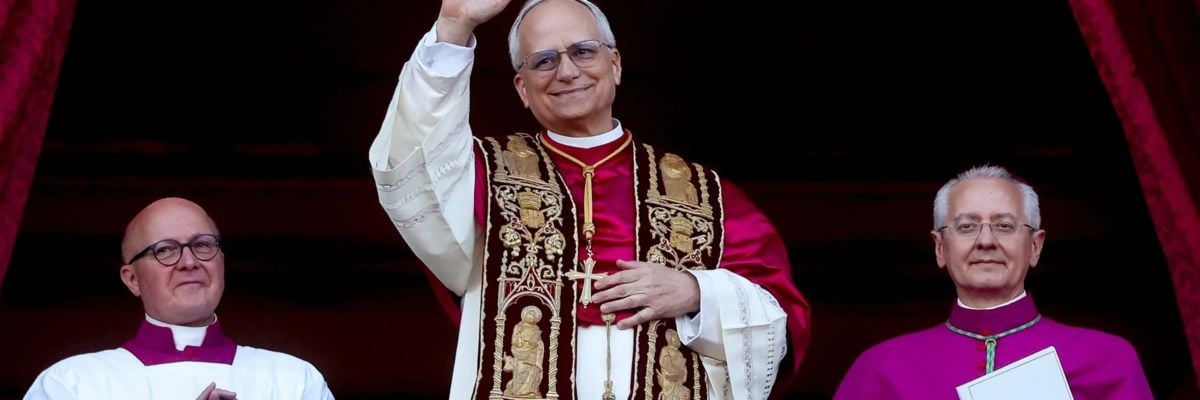
Cy Kellett is joined by apologist Joe Heschmeyer to discuss the challenges of accepting Catholic dogma from the perspective of a former Protestant pastor. Joe shares insights on the necessity of a unified understanding of Scripture and the role of dogma in guiding theological beliefs.
Transcript:
Cy: Welcome, Tony. Why aren’t you Catholic?
Caller: Several years ago, I actually subscribed to the Catholic Answers magazine about 25 years ago. And I was mulling it over and I ended up becoming a Protestant pastor. At the end of the day, it’s basically whatever is held by the Catholic Church to be dogma must be accepted by every Catholic. And obviously within that, there are other reasons, specific theological reasons why I’m not Catholic, but that’s the main one.
Joe: I think that’s a great way of articulating that. Objection. First of all, what denomination or tradition were you a pastor? Were or are you a pastor in assemblies?
Caller: I was formerly Assemblies of God, but here recently, more non-denominational Pentecostal traditions.
Joe: Sure. Okay. So, I mean, I don’t want to put words in your mouth. Would it be fair to say you think that some dogma is okay?
Caller: Yes, absolutely. I mean, you know, a good percentage of Catholic Christianity is simply well-articulated Christianity.
Joe: Yeah. And so, I mean, even like within the Pentecostal world that you operate in, you’ve got Trinitarian Pentecostals and you’ve got Oneness Pentecostals, and both are reading the scripture and both are, you know, praying to God and trying to understand what his will is, what the meaning of scripture is, etc. So it seems to me like there is a need that both you and I see to have some way of adjudicating which readings of scripture are correct and which ones aren’t correct. Is that fair to say?
Caller: Well, yes. I think that the problem you have with a lot of theological trends and many Pentecostals kind of go on certain bandwagons is that, you know, they interpret it for themselves without actually looking at the scholarship, without looking at, you know, how it was originally interpreted by the Church Fathers or early Christians, you know, before a certain period of time, a point of no return, as most Protestants would kind of benchmark certain historical events. Does that make sense?
Joe: Yeah, it does. It makes total sense. And I would actually provisionally agree with you, Tony. If the Church isn’t infallible and it’s just one group of Christians telling another group of Christians what they should believe, then I would actually suggest maybe we shouldn’t have any dogmas at all. Because if it’s just, well, group A says we should interpret it in a Trinitarian way and group B says we should interpret it in a Unitarian way and neither side can speak on behalf of God, well, then I don’t know why I should trust either one over the other than that I happen to agree with A over B.
But when I go back and read the Bible, I see actually a very different picture. You have people who, you know, they read the Bible differently, they understand the Gospel differently. That has always been the case. And so in Acts 15, when you get the Judaizers who say, well, look, you know all these Old Testament passages about keeping the Mosaic Law, so therefore new converts have to keep the law of Moses and, you know, they gotta get circumcised. This is a theological dispute about the meaning and interpretation of Scripture. They can quote Bible verses at each other night and day. And frankly, the Judaizers have plenty of verses they can point to that make it look like they’re right, but they’re wrong.
And the way it’s settled isn’t that everybody just reads the Bible the same way. The way it’s settled is the Council of Jerusalem meets in Acts 15 and just declares that the Judaizers are wrong and speaks on behalf of the Holy Spirit. Acts 15:28. It seems good to the Holy Spirit and to us, and then tells people what they are bound to believe and what practices they are and are not bound to hold.
So if the Church from the time of the first century has that authority, then dogma becomes really good, because every dogma is greater insight into how to understand the Gospel message. If the Church doesn’t have that authority, but I don’t know what’s going on in Acts 15, or if the Church had that authority and then lost it somehow, then I don’t see a principled reason to say the Church can declare dogmas in areas that I agree with, but they can’t declare dogmas that challenge the way I would read Scripture on my own. I don’t know, maybe I don’t want to straw man your position at all. Is there?
Caller: Sure, sure. You need dogma to be definitive in anything. You need certain boundaries and certain… You need to color within the lines and express where the lines are. So obviously most Christians would say that in order to be a Christian, you need to believe X, Y, and Z. You know, Christians, people that don’t believe in the Trinity aren’t necessarily… Most mainstream Protestant denominations wouldn’t consider them to be Christians. You know, so I hear you.
And of course, you know, the Assemblies of God have the 16 fundamental truths. Presbyterians have their beliefs, Methodists have certain confessions. I get that. It just seems like within the Roman Catholic Church, not the Eastern Catholic Church, there is a need to maybe overly define certain things versus allowing some freedom of personal exploration. Obviously, we see the danger when we look at the growth of Protestantism with personal interpretation run amok. There needs to be some sort of authority and that needs to be expressed clearly. But there should be some freedom or some mystery allowed. Like, let’s say the Eastern Orthodox do allow certain mysteries and don’t necessarily feel the need to explain certain things where the Catholic, Roman Catholic Church does. And so that’s basically just that.
Joe: Yeah. No.
Caller: Sorry.
Joe: No, no. I kind of cut in. I apologize. But I guess I’d… Let me toss something to you and see how you’d take that. If the Church is infallible, it seems to me that that clarity with dogma is actually really helpful. Like, it’s not good if it is a case where one group is actually misunderstanding and another group is understanding correctly and the Church can speak to which one’s right and which one’s wrong, wouldn’t that be a good thing in that case? I mean, even though… Sure, I guess if you have a certain conception of freedom, maybe not. But it seems like you have a greater knowledge of the truth in that case.
Caller: I understand. I hear you. And I guess for me it was just a matter of, hey, I have… In order to become a part… I had… This was 25 years ago. I had to fully assent to everything. And if I’m going to be honest with you, I didn’t. So I couldn’t, you know, I did get confirmed and I did do, you know, go spend some time about a year or two studying Catholicism. But at the end of the day, to be a good Catholic, I had to assent to everything that was dogmatically passed down through the Magisterium, and I could not do that. And because of that lack of freedom, I just had to be honest with myself and ended up going a different route.
Joe: Look, I respect your intellectual integrity there.
Caller: Yeah. Okay.
Joe: I do. I think that you are… It is better to say I can’t say yes to this in good faith than to just pretend like you can when you can’t. And I would suggest this as a way to, for anyone who might be in similar situations to what you were in, if you take the teachings of Jesus and you just start with listing all the teachings and say, which ones do I agree with? Which ones do I not agree with? There are ones that I’m going to be confused by and ones that I’m going to be challenged by. But if I start with who Jesus is, is he who he claims to be, then it’s a lot clearer. Then I can say, okay, well, I actually trust him even when I would have come to a different conclusion.
So I’d suggest that the question with the Church one way, and I know this is the way many people go about it, is they think, okay, here are all of the teachings of the Catholic Church. Does my reading of Scripture align with each of these? Here, yes, here, no. But I think the deeper question to ask is the Church doesn’t just claim to happen to be right in these. Like the Church claims to be the Church founded by Jesus Christ. The Church claims to speak with the authority of God in certain contexts and to be the bride of Christ and points to biblical support for that. I think those claims are either true or false. And if they’re true, we should all be Catholic. And if they’re false, then frankly, none of us should be Catholic. Even if the Catholic Church happened to get all of the disputed questions right.
You know, in that sense, it’s different than being Assemblies of God or non-denominational or Presbyterian or whatever else where the statements of belief aren’t held to be infallible, they’re fallible. Men’s best guess about what Scripture means and what Christianity should stand for. And there’s an acknowledgment often pretty explicitly that this best guess may not be perfect, it may not be right, and the denomination next door may have a different best guess. Now, they don’t say best guess, but you see what I mean. Like if it’s… I guess it does come down to this question of who is the Church? And if so, then the question of my freedom kind of takes on a different character. Does that… I don’t know, does that make sense?
Caller: Tony, I hear you perfectly. I understand.
Joe: All right, that may be the best we could do for today, but I appreciate your call a lot and I think you’ve done a good job of putting to words experiences many people have!



